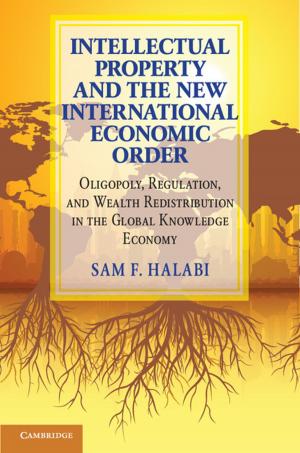Transnational Neofascism in France and Italy
Nonfiction, History, European General, Social & Cultural Studies, Political Science| Author: | Professor Andrea Mammone | ISBN: | 9781316287866 |
| Publisher: | Cambridge University Press | Publication: | September 23, 2015 |
| Imprint: | Cambridge University Press | Language: | English |
| Author: | Professor Andrea Mammone |
| ISBN: | 9781316287866 |
| Publisher: | Cambridge University Press |
| Publication: | September 23, 2015 |
| Imprint: | Cambridge University Press |
| Language: | English |
This book describes the establishment, evolution, and international links of the extreme right in one of the main Western European areas. Andrea Mammone details the long journey in the development of right-wing extremism in France and Italy, emphasizing the transfer, exchange, and borrowing of ideals, personnel, and strategies and the similarities among neofascist movements, activists, and thinkers across national boundaries from 1945 to the present day - including the Cold War years, the election of the European Parliament in 1979, and the 2014 EU elections. Mammone analyzes the adaptation of neofascism in society and politics; the building of international associations and pan-national networks; and the right-leaning responses to the defeat of fascism, European integration, decolonization, the events of 1968, immigration, and the recent EU-led austerity politics. As a book implicitly on space, borders, and belonging, it shows how some nationalisms may embody a transnational dimension and, at times, even pan-European stances.
This book describes the establishment, evolution, and international links of the extreme right in one of the main Western European areas. Andrea Mammone details the long journey in the development of right-wing extremism in France and Italy, emphasizing the transfer, exchange, and borrowing of ideals, personnel, and strategies and the similarities among neofascist movements, activists, and thinkers across national boundaries from 1945 to the present day - including the Cold War years, the election of the European Parliament in 1979, and the 2014 EU elections. Mammone analyzes the adaptation of neofascism in society and politics; the building of international associations and pan-national networks; and the right-leaning responses to the defeat of fascism, European integration, decolonization, the events of 1968, immigration, and the recent EU-led austerity politics. As a book implicitly on space, borders, and belonging, it shows how some nationalisms may embody a transnational dimension and, at times, even pan-European stances.















